End of Year Review — EPoD Looks Back on 2019
We had a busy year at Evidence for Policy Design (EPoD) at Harvard Kennedy School, as we continued collaborating with decision-makers on policies that improve life and create opportunities for people around the world. Here is a look back on 2019, month by month – the events that moved us and the events we hosted, the articles we wrote and the articles written about our research on some of the world’s most intractable policy problems.
To keep abreast of our work, subscribe to our mailing list and follow EPoD on Twitter and Facebook. And for information on ways to get involved and support EPoD’s agenda, see our information on our Fellowships and other Jobs and Opportunities.
December
EPoD joined the global development community in celebrating as the Nobel Prize in Economics was presented to our colleagues, coauthors, and dear friends Abhijit Banerjee, Esther Duflo, and Michael Kremer.
In their Nobel Lectures on December 8, the prizewinners cited many studies from the larger community of researchers taking an experimental approach to poverty reduction. We were humbled that they featured studies coauthored with EPoD Faculty Director Rema Hanna, along with other work by EPoD affiliates Shawn Cole, Gabriel Kreindler, Rohini Pande, and Michael Walton.
As Abhijit said, “Thank you very much from all of us – from the three of us, but also, in a sense, from the entire community of what some people call ‘The Randomistas’, who we represent and whose work we build on and benefit from.”
EPoD congratulates our many researchers who are part of that community.
Removing the barriers that hold Pakistan's schools back from making the changes that lead to better learning outcomes. Zainab Qureshi interviewed about EPoD LEAPS research on the CID Speaker Series Podcast
Biometric technology has proven useful for financial inclusion and anti-corruption efforts. Now a new study shows it can improve healthcare delivery and decrease data forgery, too. Vincent Pons, Clara Delavallade, Thomas Bossuroy, and Vestal McIntyre for VoxDev
November
EPoD faculty Teddy Svoronos and Dan Levy noticed a lack of data on the classroom dynamics in the statistics courses they taught, so they created an app for it. Beckie Supiano for the Chronicle of Higher Education
On the road to universal health coverage, how do we get citizens to join contributory insurance programs? Rema Hanna, Abhijit Banerjee, Amy Finkelstein, Benjamin Olken, Adrianna Ornaghi, and Sudarno Sumarto for VoxDev
What would life at 2 degrees warmer look like? EPoD PhD Affiliate Patrick Behrer crunched the numbers and finds decreased productivity and increased health risks for those working blue collar jobs. Colleen Walsh for the Harvard Gazette
Policy implications from Saudi Arabian labor market research carry lessons for employment policy more broadly. Ammar Malik and Charlotte Tuminelli presented results from Saudi youth employment projects during the International Labour organization’s “Measuring Decent Jobs” training course.
October
Pakistan's Finance Minister and State Bank Governor, Hafeez Shaikh and Reza Baqir, discussed challenges and opportunities with Professors Carmen Reinhart and Asim Khwaja at the first annual Pakistan Development Forum, hosted by EPoD and CERP.
EPoD’s SPDI framework guides both our research and our trainings. Charlotte Tuminelli and Ammar Malik demonstrated the SPDI approach at the SEEP Annual Conference in Washington, D.C.
What’s in the price of a pen? Millions of Rupees, if you’re the Government of Pakistan. Adnan Kahn and Michael Carlos Best in EPoD’s series for Dawn, The Analytical Angle
August
Tax administration reform is a far more effective way for India to increase revenues than changing the tax rate. The work of Rema Hanna and coauthors covered in LiveMint
Beliefs about dependency can have real and tangible implications for the poor, but what if those beliefs are wrong? Rema Hanna for Project Syndicate
July
To empower a wide set of policymakers to use evidence in policy design, you have to train at scale. EPoD hosted a Training of Trainers workshop to equip 20 policy leaders from Pakistan and Bangladesh with skills for data-driven policymaking. Now, workshop alumni are teaching EPoD's curriculum to civil servants in their countries.
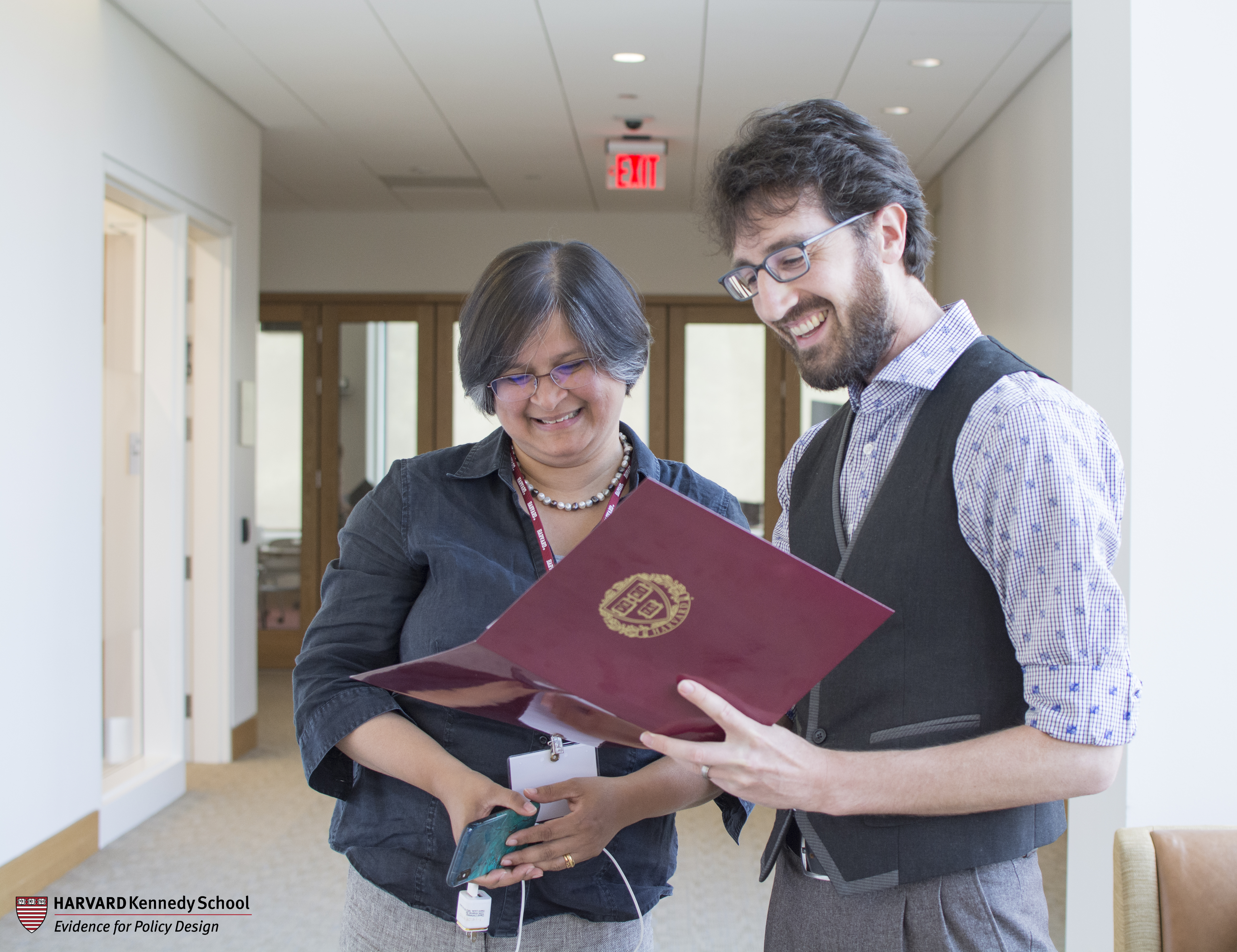
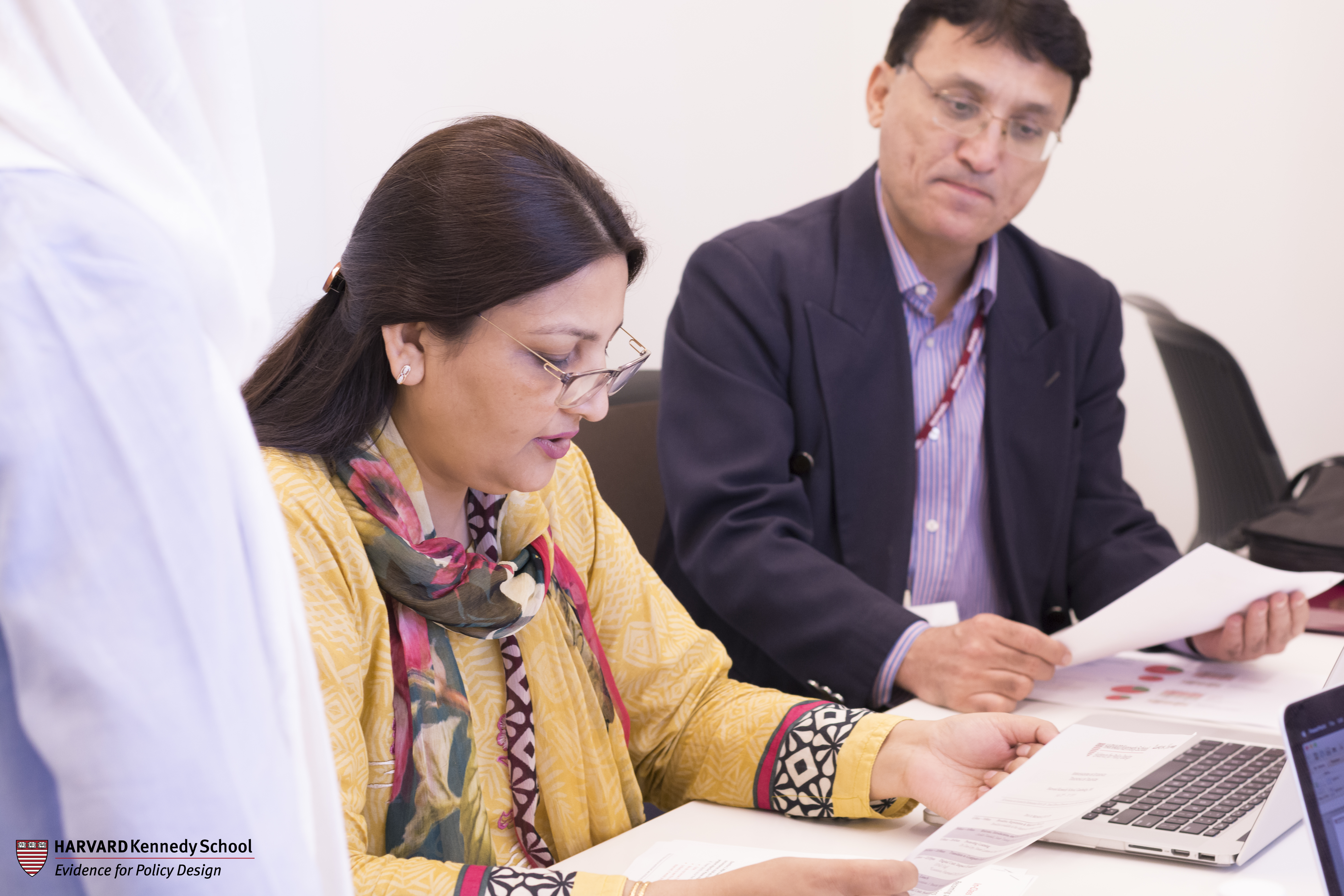
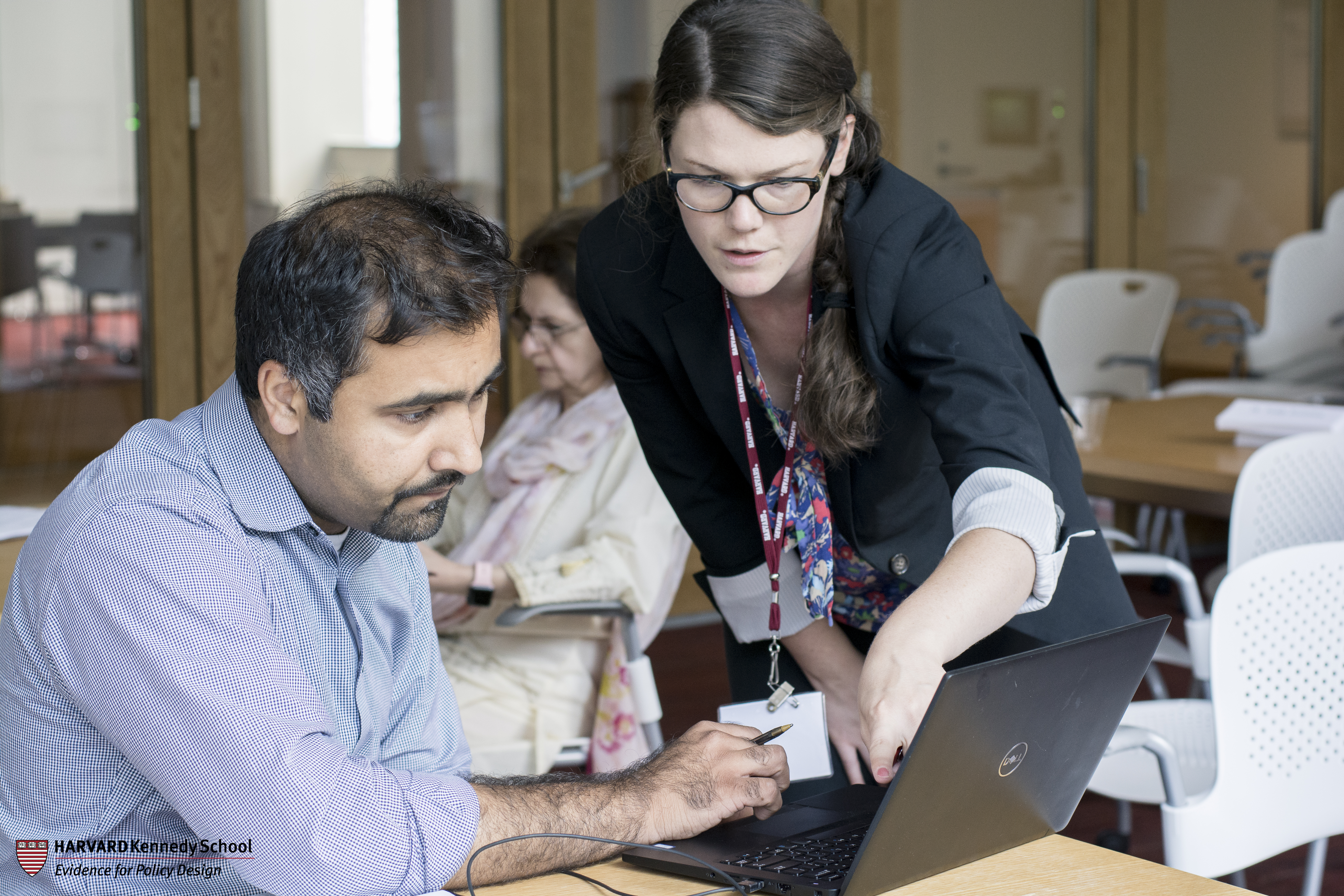
EPoD’s Teddy Svoronos discusses equity, identity, and representation within pedagogy and curriculum at the Kennedy School with a panel of HKS students. Kennedy School Review Podcast
Pakistan’s trade balance is increasingly negative – despite staggering opportunities for growth and diversification. Maroof Ali Syed and Maha Rehman in EPoD’s series for Dawn, The Analytical Angle
May
Why haven't Pakistan's education reforms had more effect, and how can policymakers do better? Tahir Andrabi and Isabel Harbaugh Macdonald in EPoD’s series for Dawn, The Analytical Angle
Over 3,900 civil servants in South Asia have completed EPoD's training program in using data and evidence. Ralph Ranalli for HKS Magazine
April
No longer just for the rich, low-cost private schools are providing opportunities in developing countries. Research from EPoD’s LEAPS project covered by The Economist
EPOD hosted Yasuyuki Sawada, Chief Economist of the Asian Development Bank, in an April 17 event, “Towards a Disaster-Resilient Asia”. The full Asian Development Outlook (ADO) 2019 report
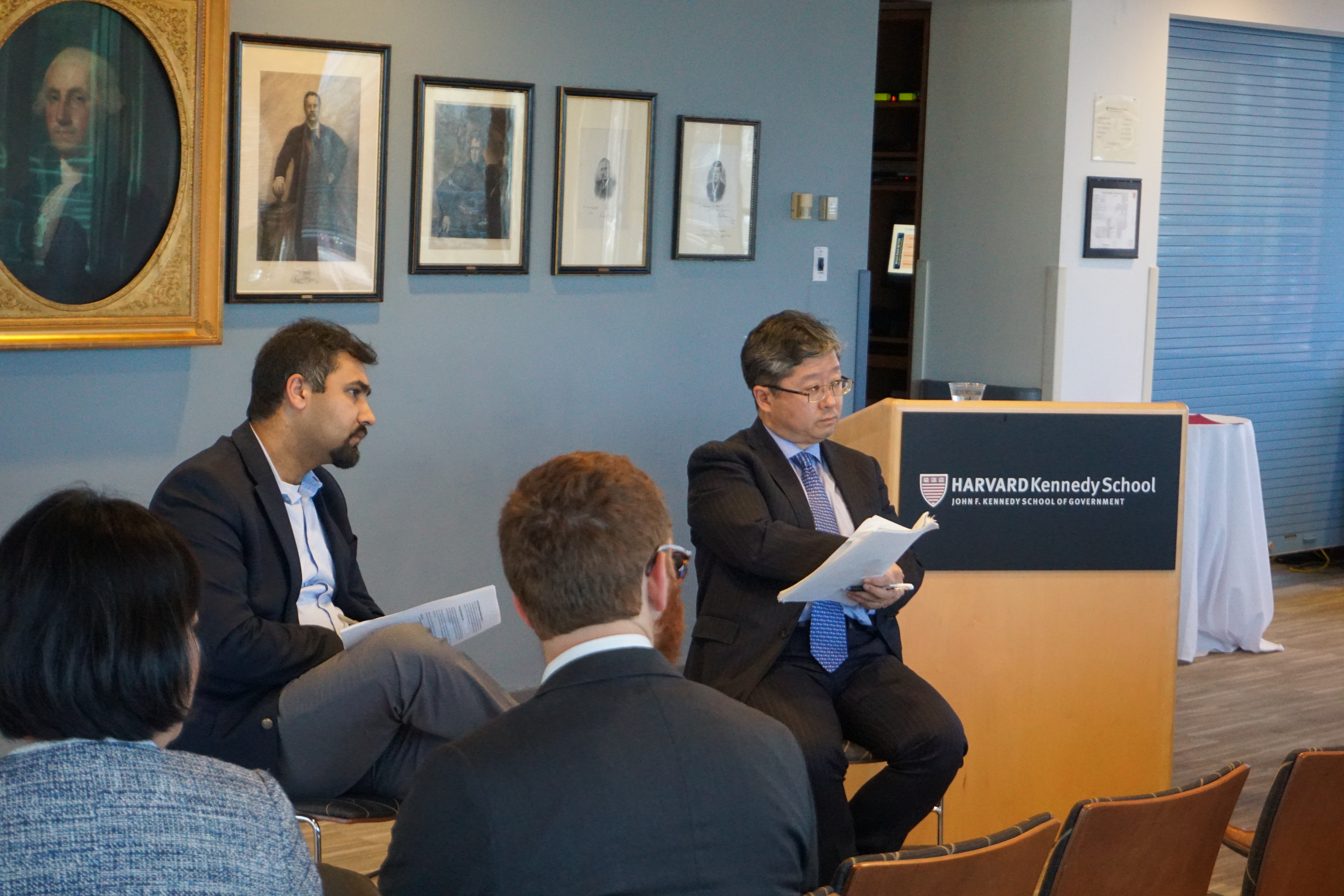
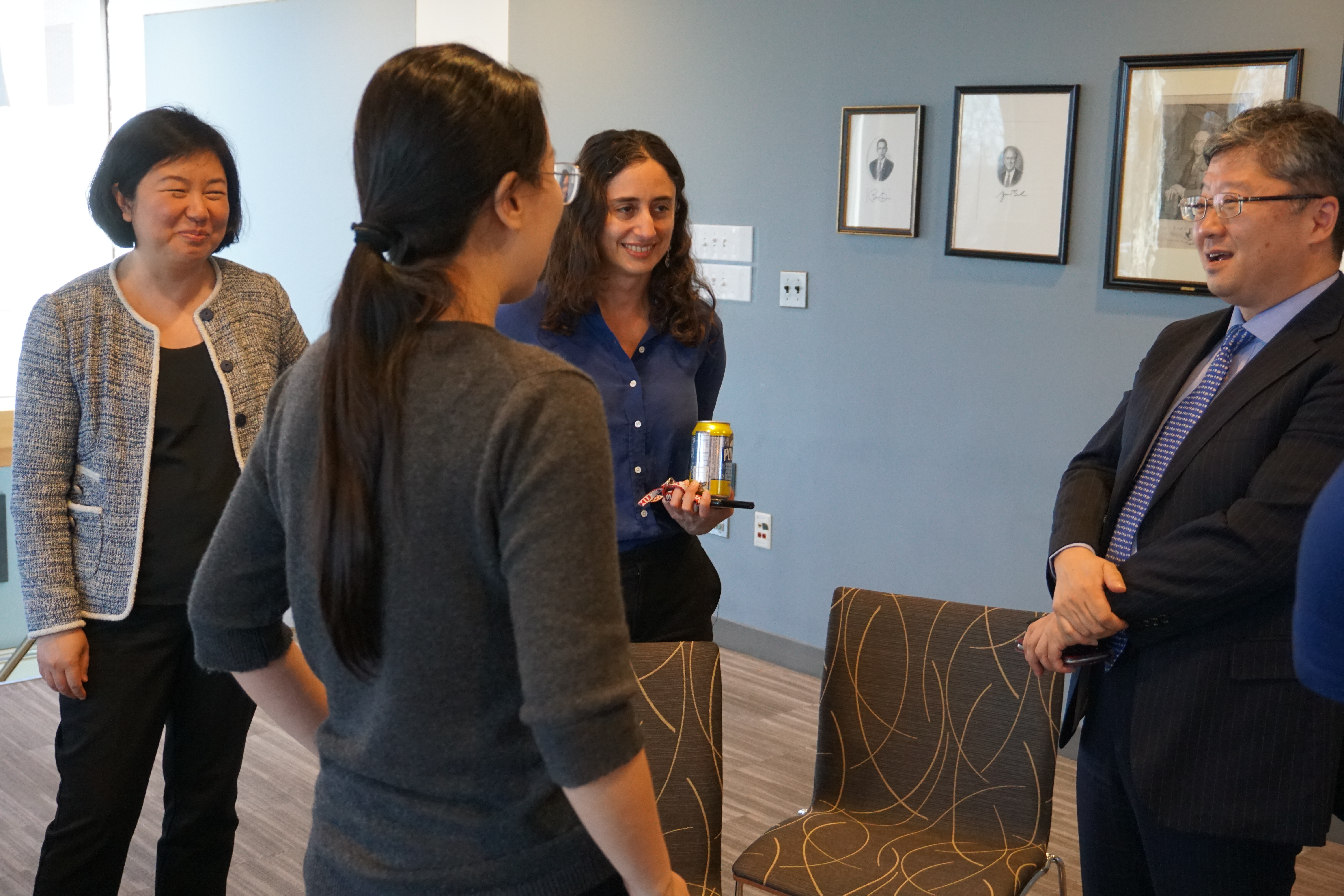
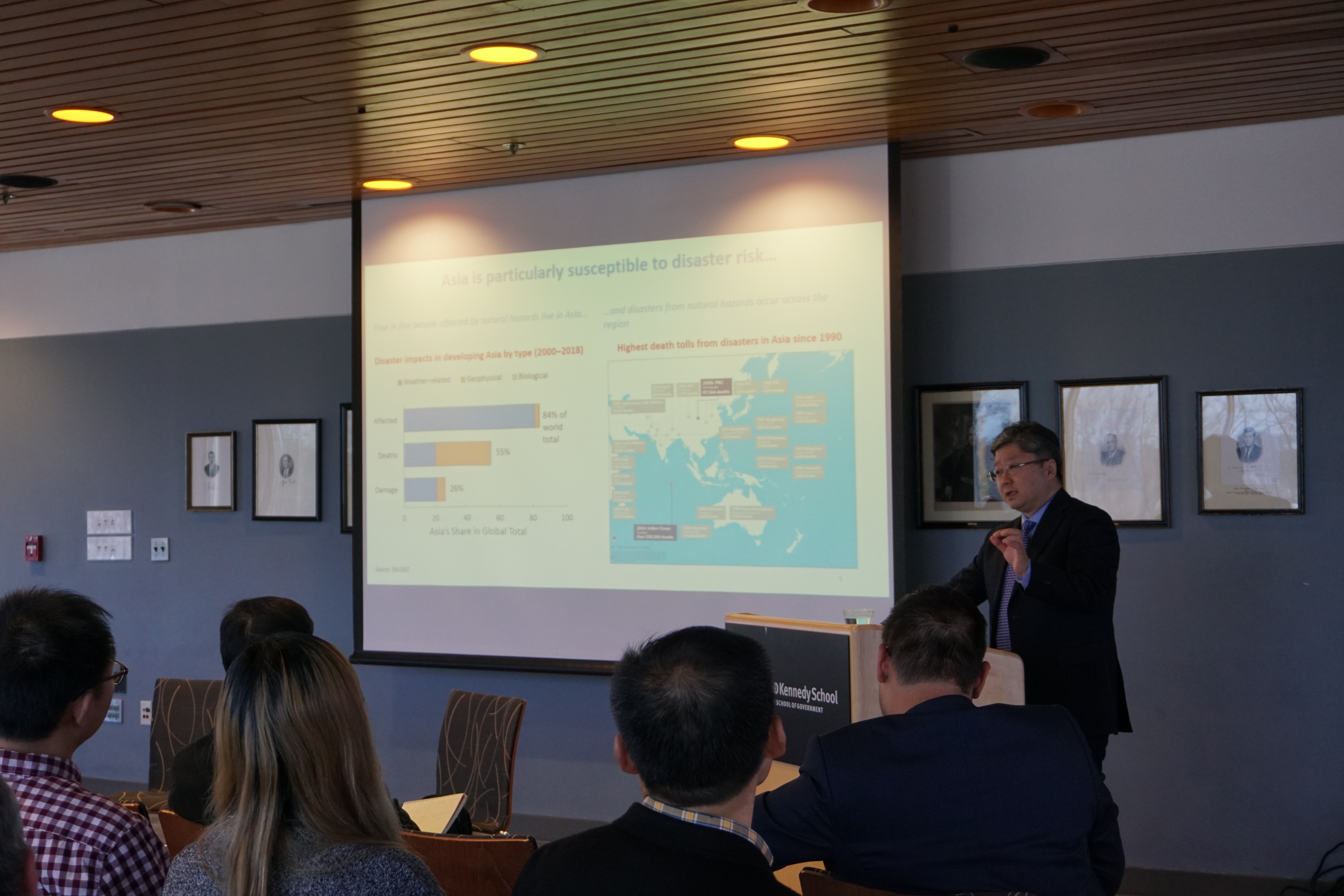
To understand why developing countries have such low levels of taxation, think about supply and demand. Anders Jensen interviewed by HKS Blog
March
There is no one-size-fits-all solution: it’s time to take an experimental approach to civil service reform in Pakistan. Asim Khwaja and Tiffany Simon in EPoD’s series for Dawn, The Analytical Angle
Why is so little quantitative research being done on the effects of Pakistan's many educational reforms? Zainab Qureshi for the Express Tribune
An information campaign in Delhi slums used transparency to bring politicians' priorities more in line with the needs of the poor. Research by Abhijit Banerjee, Nils Enevoldsen, Rohini Pande, and Michael Walton covered in Chicago Booth Review
February
Delhi policymakers must use a more efficient, cleaner, and safer transportation system that can accommodate millions of people to reduce air pollution. Sonya Suter for IndiaSpend
January
Reaching the world's Invisible Poor – those left behind by both growth and aid – will require solving not only problems of capacity, but of will. Rohini Pande, Lucy Page, and Vestal McIntyre for the New York Times
Men and women experience public transportation very differently. How can an app enable women to move about their community and engage in the economy? Ammar Malik spoke at the World Bank’s Transforming Transportation conference
Five Recommendations for developing economies to improve capacity to deliver social protection to the poor. Rema Hanna, Adnan Khan, and Benjamin Olken for EPoD blog
We will be expanding the EPoD community to a wider set of affiliates across Harvard in 2020 – Stay tuned!






